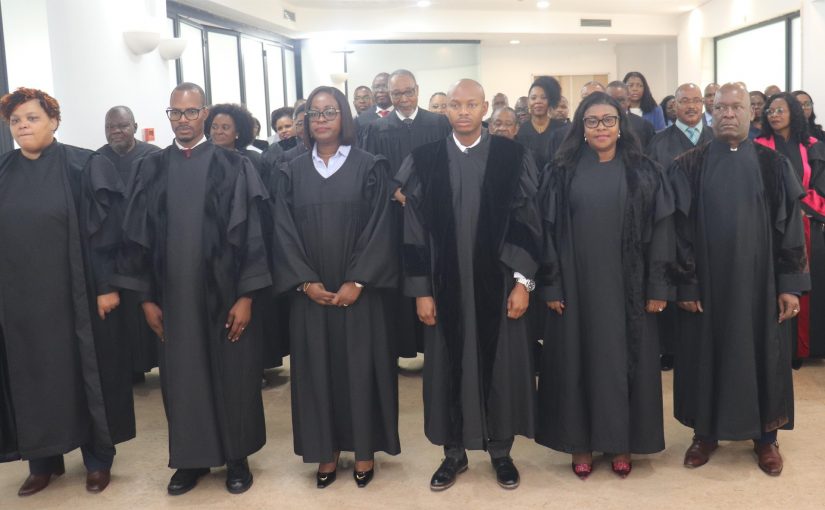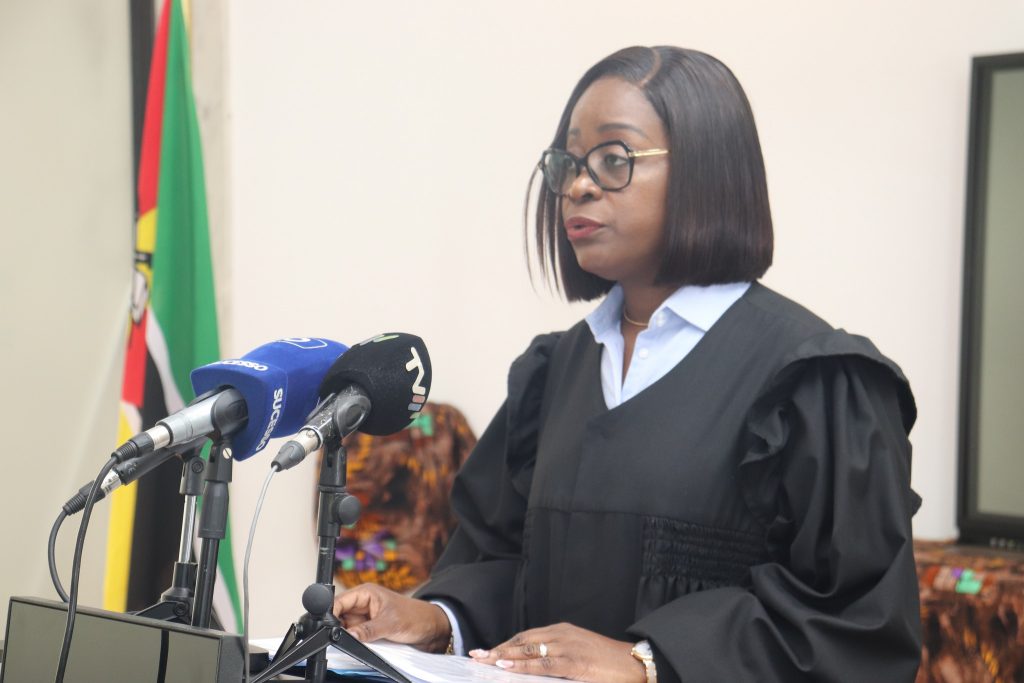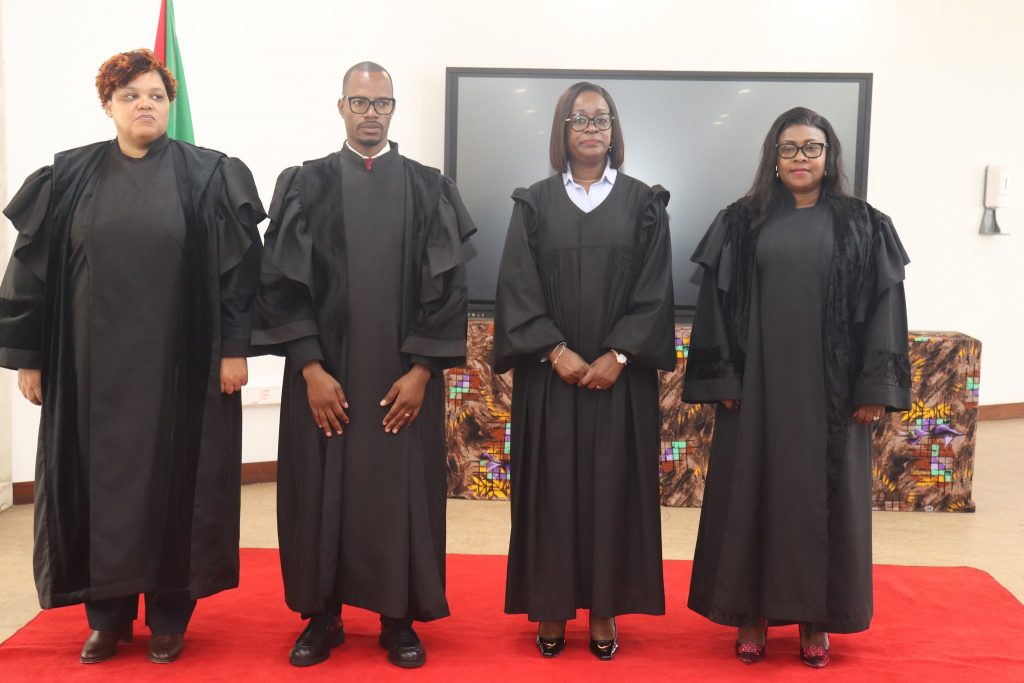Top Vietnamese leader receives Secretary General of Frelimo party
Administrative Tribunal calls for reform of Mozambique’s tax and customs laws

Photo: Tribunal Administrativo de Moçambique
The President of Mozambique’s Administrative Tribunal (TA), Ana Bié, said on Tuesday that the country urgently needs a deep reform of its customs and tax legislation, to make it clearer, more modern, and better adapted to Mozambique’s reality.
“It is therefore urgent to move forward with a profound reform of this [customs and tax] legislation, to make it clearer, more modern and, above all, adapted to the Mozambican context,” said Ana Bié, speaking in Maputo shortly after swearing in new presiding judges of the fiscal and customs tribunals.
On the same occasion, an inspector of administrative justice was also sworn in, to whom the President of the Administrative Tribunal called for a “firm and exemplary contribution.”

Referring to the approximately 18,000 “ghost” civil servants detected in the Mozambican public service, Ana Bié said there were signs of criminal activity, adding that if financial or other irregularities within the Tribunal’s remit are found, they will be investigated.
“In this particular case, it seems to us that there are more criminal indications. If there are financial or other infractions that fall within the competence of the Tribunal, we will obviously investigate,” she assured.

READ: Mozambique: Ana Maria Gemo is the new president of the Administrative Tribunal
At the end of September, Mozambique’s Minister of State Administration and Public Service, Inocêncio Impissa, said that around 18,000 “ghost” public servants had been deactivated this year, promising to “cleanse” the ranks of the state’s workforce.
“Based on the work we have been doing and the systems we have introduced, we have been able to detect cases of salary diversion. A total of around 18,000 employees have been deactivated during this period — to us, they are ghost workers,” Impissa said at the time.
In his remarks a few days later, while serving as cabinet spokesperson, Impissa said that these “ghost employees” were only identified after the government introduced a mobile phone-based electronic system for civil servants and state agents to prove they were alive, replacing the previous model that had allowed payments to continue to these 18,000 workers.













Leave a Reply
Be the First to Comment!
You must be logged in to post a comment.
You must be logged in to post a comment.